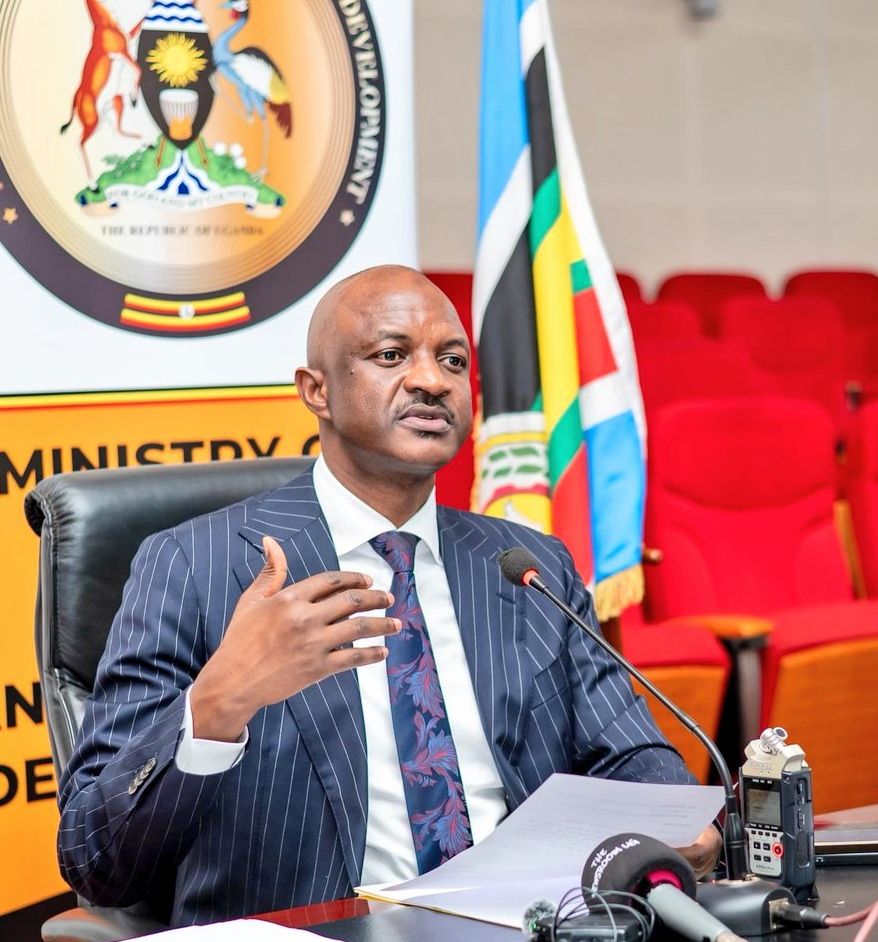KAMPALA, July 15, 2025 — The Finance Ministry has issued expenditure limits totalling Shs 17.18 trillion to kick‑start implementation of the national budget for the first quarter [July–September] of the 2025/26 financial year [FY].
The funds, announced by Permanent Secretary and Secretary to the Treasury, Ramathan Ggoobi represent 23.7 percent of the approved Shs 72.38 trillion budget and are earmarked to accelerate the government’s Ten‑Fold Growth Strategy, centred on Agro‑industrialisation, Tourism, Mineral‑based industry and Science, technology and innovation [ATMS].
“This year’s budget is deliberately crafted to fast‑track the Ten‑Fold Growth Strategy,” Ggoobi said while releasing the quarter funds on Tuesday at the Finance Ministry’s headquarters in Kampala.
He added, “Our goal is to deliver better services to Ugandans at the lowest possible cost while stimulating high‑impact sectors that can multiply jobs and exports.”
Where the money is going
Wages and salaries: Shs 2.26 trillion will go to meet government payroll obligations, while Shs 482.76 billion is set aside for pensions and gratuities.
Debt and treasury operations: The single‑biggest share, Shs 6.93 trillion, will service public debt and manage treasury operations.
Non‑wage recurrent spending: Ministries, departments and agencies [MDAs] receive Shs 4.50 trillion for day‑to‑day operations, including Shs 249.38 billion for Parliament and Shs 468.72 billion for the Electoral Commission.
Development projects: Government‑funded development projects get Shs 692.9 billion, while externally‑financed projects—such as Karuma hydropower and rural electrification receive Shs 2.72 trillion.
Local revenue retentions: Agencies allowed to retain their own income, such as the Uganda Wildlife Authority and Uganda National Oil Company, will manage Shs 82.17 billion this quarter.
Driving ATMS growth
Within the ATMS pillars, the Finance Ministry released: Agro‑industrialisation: Shs 215.28 billion, including Shs 152.86 billion for development projects and Shs 62.41 billion for agricultural research and programme operations.
Tourism Development: Shs 20.5 billion to brand Uganda, enforce hospitality standards and market key attractions.
Mineral‑Based Industry & Oil and Gas: Shs 26 billion split between the Ministry of Energy and the Petroleum Authority to progress strategic mineral and petroleum projects.
Science, Technology & Innovation: Shs 139.13 billion, of which Shs 83.3 billion supports national innovation initiatives and Shs 33 billion funds creatives under the Ministry of Gender.
“We are backing sectors with the greatest multiplier effect—agriculture, tourism, minerals and innovation—because that is where the ten‑fold growth will come from,” Ggoobi emphasised.
Enabling sectors
Security and Governance: Defence leads with Shs 719.12 billion, followed by the Police [Shs 130.73 billion] and State House [Shs 108.38 billion].
Infrastructure: The Works and Transport Ministry gets Shs 1.08 trillion, of which Shs 942.9 billion will clear contractor bills, while energy receives Shs 420.76 billion for rural electrification, transmission lines and Karuma completion.
Kampala Capital City Authority [KCCA]: Shs 148.32 billion will fund ongoing road and drainage upgrades.
Human capital development
Education, health and social protection together command more than Shs 1 trillion this quarter. Highlights include:
Education: Shs 143.75 billion to the Ministry of Education and Shs 157.73 billion to public universities and tertiary institutions.
Health: Shs 262.88 billion to the Ministry of Health for infrastructure and vaccine‑related projects, plus Shs 173.96 billion for National Medical Stores to procure essential drugs.
Social protection: Shs 118.23 billion for the Ministry of Gender, including funding for the Social Assistance Grants for Empowerment [SAGE].
Specialised Institutes: Uganda Cancer Institute and Uganda Heart Institute share Shs 80.18 billion, while regional referral hospitals, Mulago and Butabika receive Shs 40.99 billion.
Local governments: Shs 382.03 billion supports district operations and priority projects.
Security
Under security, Ministry of Defence and Veteran Affairs Shs 719.12 billion; Uganda Police Force Shs 130.73 billion; State House Shs 108.38 billion; Uganda Prisons Service Shs 87.15 billion; Office of the President Shs 111.4 billion; Internal Security Oragnisation [ISO] Shs 39.2 billion and External Security Oragnisation [ESO] Shs 86.9 billion.
Ggoobi reminded accounting officers of strict financial management rules: “Salaries, pensions and gratuities must be paid by the 28th of every month; no contracts should be signed without a verified budget; and all payments must be executed in Uganda shillings.”
He added, “We will not tolerate fresh domestic arrears. Pay service providers on time, and convene finance committees to agree quarter‑one priorities before allocating funds.”
With the first‑quarter resources now on the table, ministries, agencies and local governments are expected to begin procurement, settle outstanding obligations and roll out development projects in line with the approved budget.
The Finance Ministry estimates that Shs 43.4 trillion after setting aside debt repayments and arrears—remains genuinely available for programme implementation during the year, underscoring the need for fiscal discipline to achieve Uganda’s ambitious growth targets.
https://thecooperator.news/finance-ministry-mps-agree-on-next-budget/
Buy your copy of theCooperator magazine from one of our countrywide vending points or an e-copy on emag.thecooperator.news
